‘Placement Blues’, a hornet’s nest you do not want to stir and definitely a predicament you do not want to share with most fellow college peers. Once in a lifetime opportunities, doors to endless possibilities and stepping stones to a brighter and better future is what makes the prized package college placement stints the most sought-after time of the year for any final year student.
However, to get through this time successfully and not over it defeated, is to first beat the quandary that comes with all the paraphernalia of acing Fortune 500 job placement interviews.
Campus Placement: What is it?
A university or other educational institutions may run a programme called campus placement or recruitment to find jobs for students who are about to graduate. In this programme, institutions collaborate with businesses looking to hire students.
There are two categories of businesses that hire new employees. These include:
Companies that provide services: TCS, Infosys, Wipro, Cognizant, etc.
Companies that focus on products: Goldman Sachs, Adobe, Microsoft, etc.
How to get ready for your campus placement!
The hiring procedures are slightly different for businesses that offer both products and services. The hiring procedures of these companies are described below.
Process for Placing Service-Based Businesses
In service-based companies like Deloitte, the hiring process begins with registration resume shortlisting, which is only included in the process for 4–8 LPA packages.
- Online Test- only top 20-25% clear the online test. It includes
- Aptitude
- Logical
- Verbal
- Coding questions
- Programming MCQ (C/c++)
- DSA (Intermediate)
- SQL/DBMS
- Previous year Questions
- Additional Advanced Coding Test
- Only for TCS Digital + Cognizant
- GenC Next Wipro Star/Power
- Programmer Infosys SP-DSP. That is service-based company’s Higher package roles
- Technical Interview 20-30 mins
- C/C++
- Java or Python
- Puzzles
- Projects (that can be demo’ed by sharing screen)
- DSA (Intermediate)
- DBMS/SQL
- Guestimates
- Cerifications (Udemy, NPTEL, Coursera certifications not valued)
- HR Interview 10 minutes
- Puzzles
- Situation based questions
- Stress based questions
- Projects
- Business Ethics
- Corporate Ethics
- Selection/Rejection (5-10% finally get selected)
- Offer Rollout
Placement Process for Product-Based Companies
The interview process starts with
- Registration
- Resume Shortlisting- only for which is a part of the process only for 4-8 LPA Packages, in companies like Deloitte, ZS, KPM, etc.
- Online Test- (10-15% Clear Online Test)
- Aptitude
- Logical
- Verbal
- Coding questions
- Programming MCQ (C/c++)
- DSA (Intermediate)
- SQL/DBMS
- Previous year Questions
- Technical Interview 1 (45-75 minutes)
- C/C++
- Java or Python
- Puzzles
- Projects (that can be demo’ed by sharing screen)
- DSA (Intermediate)
- DBMS/SQL
- Guestimates
- Cerifications (Udemy, NPTEL, Coursera certifications not valued)
- Competitive Coding
- Technical Interview 2 (20-30 minutes)
- DSA (Advanced)
- Competitive Coding
- DBMS/SQL
- Certifications (Udemy, NPTEL, coursera certifications are not valued)
- Projects (50% of interview duration will be on this)
- HR Interview 10 mins
- Puzzles
- Situation based questions
- Stress based questions
- Projects
- Business Ethics
- Corporate Ethics
- Selection/Rejection (2-3% finally get selected)
- Offer Rollout
Important Information to Keep in Mind When Preparing for Campus Placements: –
- This is a basic framework. For various businesses and colleges, it can change.
- Group Discussion sessions are also held at some businesses, such as Deloitte and D.E.Shaw.
- Before the technical interview, the group discussion is held.
How Can You Get Ready for Placements? (Ten plus LPA packages)
- Basics of aptitude 1 month
Quantitative, logical, verbal, data interpretation, visual reasoning, game-based estimations of aptitude, and live workshop. (Videos, practise tests, and mock exams)
- Hard Skills 3-4 days
HR preparation, GD preparation, resume building, a live workshop, and interview practise. Assignments, handbook notes, and videos
- Subjects and Languages 1- 1/2 months
SQL, DBMS, OOPs Operating Systems, C/C++, Java, or Python. (Videos, practise tests, and mock exams)
- Coding 2-2.5 months
Intermediate Coding, Top 100 Codes DSA Basic, DSA Advanced. (Videos, Coding Problems)
- Skills Picking any one of choice- 14 days
Machine Learning and AI, Cyber Security Cloud Computing, Business Intelligence SalesForce, Ethical Hacking. (Videos, Projects)
Placement Rounds: –
This includes: –
- Resume Shortlisting
- Online Test
- Aptitude Test
- Game-Based Aptitude
- Psychometric Test
- Data Interpretation
- Guesstimates
- Visual Reasoning
- Programming MCQs
- Coding Test
- Group Discussion
- Technical Interview
- Techno-Managerial Interview
- HR Interview
Additional Skills to develop: –
Additional skills that you should learn to ace your placements: –
- Data Structures and Algorithms
- Competitive Coding
- Interview Puzzles
- Digital Skills
Following rounds of the placement are held.
1. A SHORTLIST OF RESUMES
When applying for a placement drive, a CV is the first thing to submit.
– The majority of service-based businesses do not shortlist candidates based solely on their resumes. For Product-Based Companies, the initial step is resume shortlisting, when over 50% of applicants are turned down.
2. AN ONLINE EVALUATION
Each company does an online assessment to evaluate an applicant. It is the initial stage of the hiring process. It takes place on systems such as AMCAT, CoCubes, Mettl, etc.
Online evaluation is divided into two sections: –
Aptitude & Coding Aptitude Test
Quantitative, verbal, and logical aspects make up aptitude. It is the first round of the online evaluation. This is possibly the most crucial step because failure to pass the aptitude test results in immediate expulsion. Students struggle with this area as well since they overlook it during preparation. As a result, we strongly advise that you prepare for aptitude tests. You should think about the following subjects:
- Numerical aptitude
- Logical Analysis
- Using speech to interpret data
- Psychometric Evaluation Based on Gaming
- Visual Thinking
Coding
There are two sections to the coding test: MCQs for programming
This comprises multiple-choice questions built on theoretical knowledge and programming ideas.
Practical Coding
This entails creating programmes to address the provided problem statements.
The priority order in which you should be ready for placements is listed below.
1. C/C++
You should give C/C++ top priority. A programming round with MCQ questions is common in businesses. These tests use C and C++ as their foundation. Pointers, operator overloading, and other notions not found in other programming languages are present in these languages.
2. Intermediate and Basic Coding
Three sections make up the learning process for coding:
- Basic
- Intermediate
- Advanced
Preparing up to Intermediate coding should be sufficient for the majority of businesses. But you should definitely practise advanced coding if you have the time.
4. Technical Consultation
The most crucial interviews during the hiring process are technical interviews. A candidate’s technical and coding abilities are evaluated in this phase. Questions from C, C++, practical coding, projects, certificates, and other topics are covered in the Technical Round.
5. Techno-Managerial Interview
Situational-based questions are part of the managerial interview rounds. Here, the interviewer presents the candidate with concrete circumstances and asks them to explain their actions. For this round, the STAR method is preferred.
Interview inquiries and responses
- Who among these 200 pupils should I hire?
- How can you fix a mistake once it has been made?
- How will you manage a team that is experiencing internal conflicts?
Note: During the management round, the interviewer also gives emphasis on projects. For businesses that sell products, technological abilities. For Product-Based companies, technical skills are also checked in this round.
6. HR Interview
The final phase of the hiring process is the HR Interview. It is a difficult round that determines whether the candidate is a good fit for the business.
Top questions for HR interviews
- Identify or describe yourself
- What are your main strengths and weaknesses?
- What CTC are you anticipating?
- Have any inquiries for the company?
Additional Skills
Here are some more abilities you should work on to get ready for placement rounds.
1. Algorithms for Data Structures
DSA is starting to matter more and more during placement rounds. IT organisations are beginning to maintain DSA knowledge as a qualification standard. Give DSA 15 to 30 days to prepare, is what we’d advise.
2. Competitive Coding
Programming at an advanced level is competitive coding. Toward the end, you should start getting ready for competitive coding.
3. Interview Puzzles
Along with questions on technical skills, interviewers may also pose riddles and queries about logical reasoning. These inquiries measure the candidates’ IQs and assess their capacity for problem-solving.
4. Digital Knowledge
Companies increasingly demand that applicants be familiar with trendy abilities like artificial intelligence and machine learning.
- Machine Learning
- Machine or AI intelligence
- Internet security
- Ethical hacking
- NLP and deep learning
Please take note that we advise against choosing web development as a second digital talent. This is due to the fact that it will take you at least six months to fully understand it. Spending so much effort on one skill is not practical unless you are starting your preparation in the third or fourth semester.
5. Frequently Asked Technical Skills Questions
Technical Knowledge is also expected by IT organisations in addition to coding skills. These include understanding of SQL, operating systems, database management, and other topics.
Conclusion
College life is like a candy store. You will get to see a wide assortment and trying out each candy rarely results in being a curse having no rate of return. In simpler words, during college you will experience the gains and losses of several opportunities. Mingle, converse with individuals and make a great deal of connections. These years will give you lessons that will last forever helping you grow comprehensively to be an all-rounder, only and only if you embrace it.
You come to college for a specific reason, gratify it and find out how successfully your life is turning out to be.

